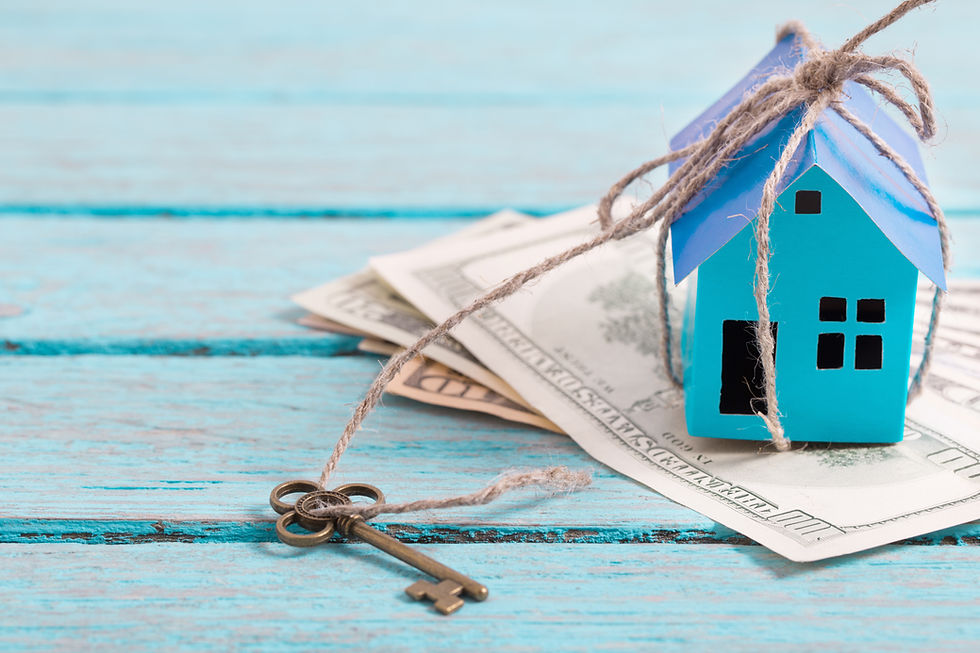Flipping Houses: Is it Better than Buy-and-Hold?
- LendingDeck
- Oct 21, 2020
- 4 min read
Article Source: Investopedia.

The question of whether flipping or buying and holding real estate is the best strategy for investing in property doesn't have one correct answer. Instead, choosing one method over the other should be part of a clear strategic plan that considers your overall goals.
You should also take into consideration the opportunities presented by the existing market. Here is a look at what is involved in pursuing each strategy and how to decide which one might be right for you.
One key distinction between buying and holding and flipping properties is that the former can provide you with passive income, while the latter offers active income.
Passive income is money that comes to you each month, wherever you are, from your investments. It could be from stocks and bonds or from owning rental property and receiving rental income each month, provided you hire a management company to do all the required tasks, such as finding tenants, collecting rent, and taking care of maintenance.
Active income is money that you earn. That includes your salary from work, as well as profits you make flipping houses. Flipping is considered active income, regardless of whether you are doing the physical labor of stripping floors. It is still a business that you engage in—finding a property to flip, purchasing it, obtaining insurance, overseeing contractors, managing the project, and more.
In this sense, flipping isn't just an investment strategy like buying and holding stocks or real estate. If you have a day job, keep in mind that your spare time will likely be taken up with all of the demands that flipping a property entails.
One big advantage of flipping properties is realizing gains quickly, which releases capital for other purposes. The average time to flip a house is about six months, though first-timers should expect the process to take longer. Unlike the stock market, which can turn in the middle of a day, real estate markets are often more predictable. In a sense, flipping properties could be considered a safer investment strategy because it is intended to keep capital at risk for a minimal amount of time. It also lacks the management and leasing risks inherent in holding real estate—not to mention the hassles of finding tenants, collecting rents, and maintaining a property.
On the downside, flipping houses can create costs issues that you don't face with long-term investments. The expenses involved in flipping can demand a lot of money, leading to cash flow problems. Because transaction costs are very high on both the buy and sell sides, they can significantly affect profits. If you are giving up your day job and relying on flipping for your income, you're also giving up a consistent paycheck. The quick turnaround in properties (and speed is everything in successful flipping deals) can also create swings in income that can boost your tax bill. That is especially true if things move too fast to take advantage of long-term capital gains tax rules. In those cases, you'll have to pay a higher capital gains tax rate based on your earned income if you own a property for less than a year.
Owning rental property provides you with regular income, no matter where you are or what you are doing. What's more, buying and holding real estate is a known recipe for amassing great wealth. A lot of "old money" in the U.S. and abroad was accumulated through land ownership. Despite periods of decreasing prices, land values have almost always rebounded in the long run because there is a limited supply of land. The longer you hold your investment property, the more likely you are to benefit from inflation. That will boost the property's value while the amount you borrowed for the mortgage goes down as you pay it off. Suppose you were able to purchase during a buyer's market and sell during a seller's market. Then, there's also real potential for a significant return on your investment. Owning a rental property also has tax advantages not available to flippers. Rental property is taxed as investment income, with lower tax rates. You can also write off expenses, including repairs, maintenance or upkeep, paying a property manager, and driving to or from your property.
Being unable to find tenants is one of the risks of owning rental property. That is true whether you do it yourself or hire a management company to do it for you. If your property sits empty for months or years, you are responsible for covering the mortgage during that period. Before investing in a buy-and-hold property, you'll want to make sure your budget will cover one to three months of vacancy per year.
Long-term real estate ownership is a management-intensive endeavor that is outside the skill set of many investors. Some investors, especially first-time rental property owners, are ill-prepared or ill-equipped to deal with the responsibilities and legal issues that come with being a landlord. The process of finding quality tenants and meeting their needs can be a stressful and time-intensive undertaking. However, successful property management is necessary to ensure ongoing cash flows from one's investment.
Bottom Line
You need to answer a few critical questions to decide whether flipping properties or holding them long-term is the best strategy. You must decide whether your capital allocation to real estate is a permanent investment or just a way to profit from an expected rise in home prices.
It would also help if you determined what risk and return ratio is appropriate for this portion of your investment portfolio. Finally, you must have the risk tolerance and skills to take on the management responsibilities that go along with either type of investment.



Comments